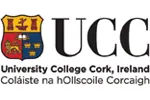We're moving! This site will be relocating to goingto.university in 2026. Please update your bookmarks to the new address.


| The award | How you will study | Study duration | Course start | Domestic course fees | International course fees |
|---|---|---|---|---|---|
| BSc (Hons) | Full-time | 4 years | September | EU 3000 | EUR 3000 |
Overview
The BSc Finance is based equally on the subject areas of corporate finance and financial economics. This combined approach provides graduates with a thorough grounding in each area.
Finance is concerned with the operation of financial markets and the valuation of financial assets, in particular in stock, bond, foreign exchange and interest rate markets. Movements in financial markets are driven by information, risk and uncertainty, which in turn provide the foundation for understanding strategic business decision-making.
You will gain a specialised knowledge of:
Course Details
Year 1 Modules (all 5 credits):
AC1103Financial Accounting Fundamentals;
AC1104Accounting for Partnerships and Companies;
AC1105Investment Analysis;
AC1106Introduction to Asset Valuation;
AC1109 & AC1115Introduction to Management Accounting I and II (5 credits each);
EC1200 & EC1211Quantitative Techniques for Economics I and II (5 credits each);
EC1209Understanding and Interpreting Data;
EC1210Skills for Analysing Economic Data;
EC1213 & EC1214Principles of Economic Analysis I & II (5 credits each)
Year 2 Modules:
International Financial Reporting I; Consolidated Financial Statements and Reporting; Introduction to Taxation; Applications in Corporate Finance and Accounting; Placement Plan; Corporate Financial Policies; Business Econometrics and Forecasting; The Macroeconomic Environment in the Short Term; The Macroeconomic Environment in the Long Term; Microeconomics and the Individual; Microeconomics and Macroeconomic Outcomes
Year 3 Modules:
Multinational Finance; Governance, Regulation and Control of Financial Organisations; Case Studies in Corporate Finance; Economic Consulting; Time Series Analysis; Principles of Insurance for Finance; Advanced Data Analysis for Finance; Placement and Research Report; Introduction to Corporate Information Systems
You will also spend six months on placement in a financial organisation in Year 3. This internship, which is arranged by UCC, is in a designated financial institution or related organisation located in Ireland or the UK.
Year 4 Modules:
Core
Financial Information Analysis; Corporate Valuation; Securities Analysis; Money Credit and Banking; International Finance; Economics of Corporate Strategy; Economics of Strategic Behaviour; Finance and Capital Markets; Portfolio Analysis
Electives
Taxation: Income Tax and VAT; Corporation Tax and Capital Gains Tax; Management Accounting; Empirical and Behavioural Finance; Entrepreneurial Finance; Derivatives Valuation
On successful completion of this course, you will be able to:
See the College Calendar for more detailed information on the programme and the Book of Modulesor a more detailed description of programme modules.
Fact File
Course Code: CK204
Course Title: Finance
College: Business and Law
Duration: 4 years
Teaching Mode: Full-time
Qualifications: BSc (Hons)
NFQ Level: Level 8
Costs: Full-time EU/EEA/Swiss State undergraduate students may be exempt from paying tuition fees. The State will pay the tuition fees for students who satisfy the Free Fees Criteria. In 2016/17 the Student Contribution Charge will be EUR 3,000 and the Capitation Fee will be EUR 165.
2017 Entry Requirements: H5 in two subjects, and O6/H7 in four other subjects in the Leaving Certificate from Irish, English, another language, Mathematics and two other subjects recognised for entry purposes.
Entry Points: 2016 points: 515.
Course Practicalities
Expected lecture hours:You will have approximately 12 lecture hours per week, with additional tutorial and practical hours.
Assessment
Written exams will take place before Christmas and in May. Not all modules will have formal examinations. Many modules use other types of assessment.
Application Procedure
EU Applicants: Application to Year 1 of the degree programme is made directly through the Central Applications Office (CAO). Applicants should apply online at www.cao.ie. The normal closing date for receipt of completed applications is 1st February of the year of entry.
Non-EU Applicants
Mature Applicants: Application is made through the CAOand the closing date for the receipt of completed applications is 1st February of the year of proposed entry.
Further Contact Information
Dr. Meadhbh Sherman
Co-Director, BSc Finance
T: +353 (0)21 490 3522
Dr. Steve O'Callaghan
Co-Director, BSc Finance
T: +353 (0)21 490 3462
2017 Entry Requirements: H5 in two subjects, and O6/H7 in four other subjects in the Leaving Certificate from Irish, English, another language, Mathematics and two other subjects recognised for entry purposes.
Entry Points: 2016 points: 515.
Contact University College Cork (UCC) to find course entry requirements.
Below are some suggested courses at other providers that you may also be interested in:
Acting - Foundation (Stage & Screen) Cert HE
The Liverpool Institute for Performing Arts (LIPA)
Find out moreNegotiation and Conflict Resolution MSc
Columbia University, School of Professional Studies
Find out moreIf you do not meet the entry requirements for this course then consider one of these courses from another institution:
There are 338 other courses listed from University College Cork (UCC). A selection of these are displayed below:
Join the StudyLink email list and never miss a chance to turn your study abroad dreams into reality!

Find out more about studying in Ireland